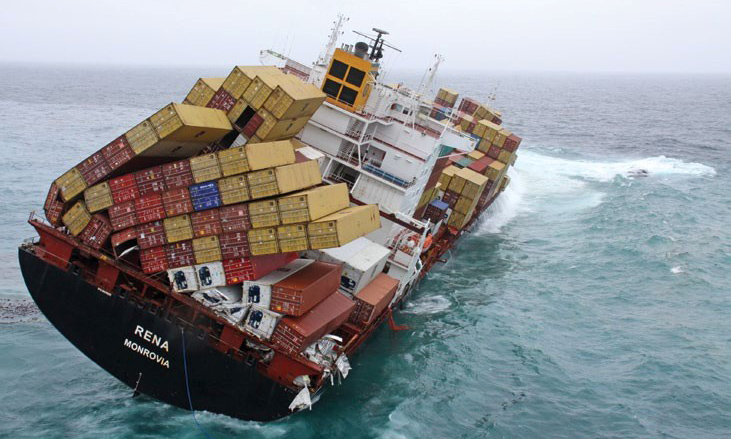Cargo and Credit Insurance
 International Trade is a risk-prone activity. Transportation related risk is largely external to the firm. That is, transportation is more likely to be interrupted and cargo lost due to factors outside the control of either the selling or buying party. Cargo loss can result from illicit human intervention (crime or terrorism), accidents (crashes, derailments, shipwreck), political incidents (trade embargo or trade war), administrative error (placing of cargo on the wrong vessel), and so on. Such events will incur losses for both the buying and the selling companies. The buyer will be without the product or materials required to continue production or business. The seller may lose the payment from the disappointed buyer. Either or both parties may have to bear the costs of recovering the goods and rearranging onward or return shipment.
International Trade is a risk-prone activity. Transportation related risk is largely external to the firm. That is, transportation is more likely to be interrupted and cargo lost due to factors outside the control of either the selling or buying party. Cargo loss can result from illicit human intervention (crime or terrorism), accidents (crashes, derailments, shipwreck), political incidents (trade embargo or trade war), administrative error (placing of cargo on the wrong vessel), and so on. Such events will incur losses for both the buying and the selling companies. The buyer will be without the product or materials required to continue production or business. The seller may lose the payment from the disappointed buyer. Either or both parties may have to bear the costs of recovering the goods and rearranging onward or return shipment.
Time and monetary losses are the most direct effects of cargo loss. Indirect effects include damage to the seller’s reputation (in floated companies, this could be reflected by fall in share price), loss of confidence in the freight forwarder or carrier, and competitiveness-reducing price increases in an attempt to recover losses. To ship profitably, carriers have to fill their vessels to capacity, or as near as possible. Vessels that sail with unused capacity operate on tighter margins. This will reflect in the prices offered to shippers. For the shipper, damage to the performance record will impact negatively on customer confidence. This, in turn, will erode future business prospects and possibly even strain the goodwill existing between the carrier and its hitherto well-served customers, who may have to decide between loyalty and ongoing reliability.
To reduce the severity of the consequences of cargo loss for all three parties, use of insurance instruments are normal practice. Use of insurance is not however legally mandated (I believe). Nonetheless, to avoid the losses described above, insurance is a sensible option.
For insurance against major losses, the following supplementary policies are available to carriers and forwarders: non-specific cargo, goods-in-transit, basic shipping, marine cargo, rail and air, and (possibly) inter- and multi-modal, since these last two are increasingly commonplace due to inland container carriage becoming de rigueur in large countries such as the United States.
The decision about which form of coverage is selected will depend on the type of events that are considered most probable and impactful in the event of their occurrence. Each company and shipper will perceive risk from their own unique perspective and select insurance as one of a suite of risk management activities. The amount of funds available to the organisation for insurance payment purposes will also influence choice of policy/degree of coverage. The final policy decision will be a trade-off between the cost of the premium and the benefits that the coverage will provide in the event of the most costly and likely disruption occurring.
“Marine” insurance is the most common form of international shipping insurance. (The term “shipping insurance” is rather misleading: typically “shipping insurance” denotes insurance that covers goods that are carried by postal or courier services.) For forwarders and companies shipping goods, “cargo insurance” is useful. Cargo insurance is thus a subcategory of marine insurance. Limited liability insurance is usually included in transportation contracts, but companies shipping high value goods on a regular basis might find more expansive, specialist policies to be safer options. These policies can be taken out in addition to the standard limited liability agreements. Typically, the party that initiates the shipping would cover itself by the arrangement of cover from an insurer, ideally a cargo-specialising insurance company. Shippers and freight forwarders can, and usually do, cover themselves for cargo loss or delay. Freight forwarders for example, are liable for costs to the buyer/seller of cargo in event of delay or inability to provide information on the arrival or whereabouts of a vessel (although with modern communications technology, this is seldom the problem it used to be). Most insuring companies are underwritten by a parent company, e.g. Lloyds. The majority of legitimate insurers will be regulated by the Financial Standards Authority (FSA). Quotes can now be obtained online.
